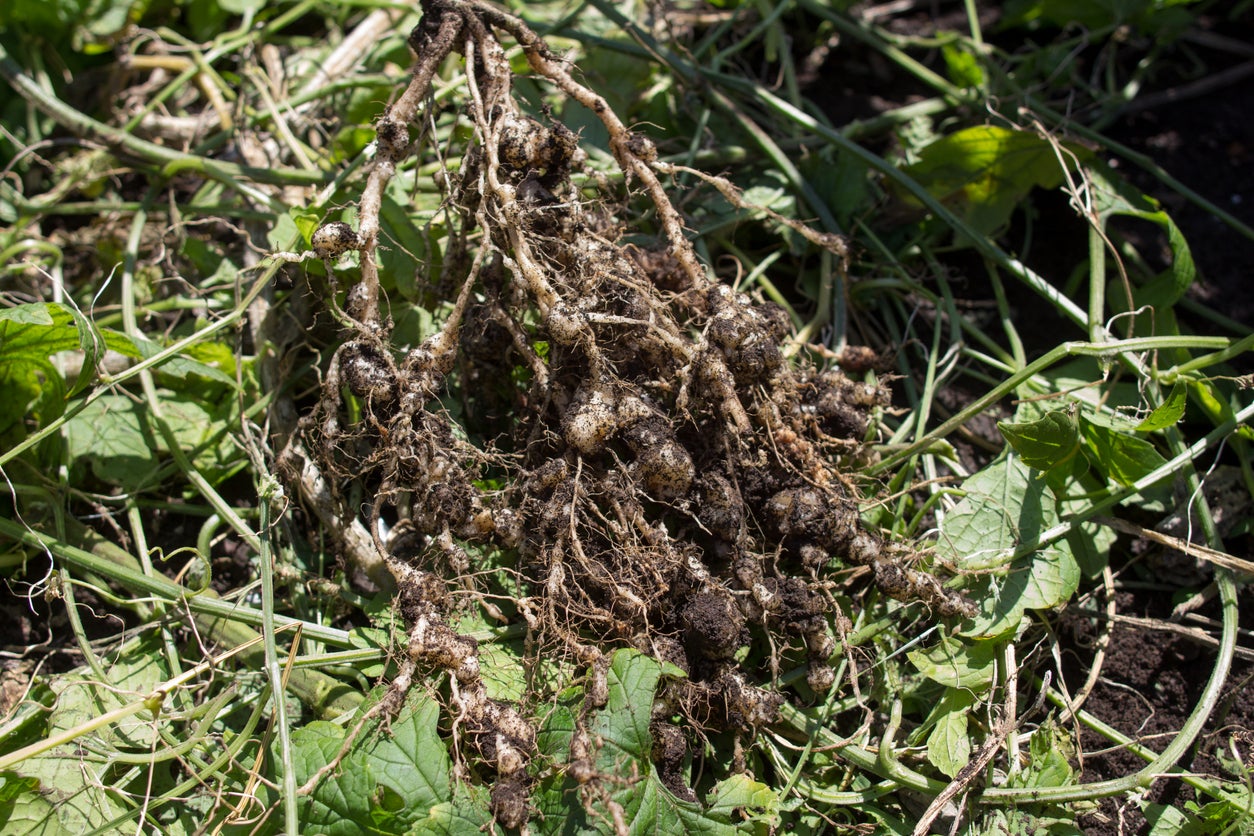Root Knot Nematode Disease: A Stunted Plant Growth Cause


A root knot nematode infestation is probably one of the least talked about but very damaging pests in the gardening landscape. These microscopic worms can move into your soil and attack your plants, leaving them with stunted plant growth and eventual death.
What is a Root Knot Nematode?
A root knot nematode is a parasitic, microscopic worm that invades the soil and the roots of the plants in the soil. There are several varieties of this pest but all of the varieties have the same effect on plants.
Root Knot Nematode Symptoms
Root knot nematode can be spotted initially by stunted plant growth and a yellow color to the plant. To confirm the presence of this parasite, you can look at the roots of the affected plant. True to its name, this nematode will cause root knots or bumps to appear on the roots of most plants. They may also cause the root system to become deformed or harry. The root knots and deformations prevent the plant from being to take up water and nutrients from the soil through its roots. This results in the stunted plant growth.
Root Knot Nematode Control
Once root knot nematodes have invaded the soil, it can be difficult to get rid of them since they attack a wide variety of plants, including common weeds such as purslane and dandelion. One course of action is to use non-host plants in the location that the root knot nematodes have infested. Corn, clover, wheat and rye are all resistant to this pest. If crop rotation is not possible, the soil should be solarized followed by a year of being fallow. The solarization will eliminate the majority of the worms and the year of being fallow will ensure that the remaining pests have nowhere to lay their eggs. Of course, the best control of this pest is to ensure that it never enters your garden in the first place. Only use plants that come from trusted, uninfected sources. If you suspect that your garden has been infested with this pest, bring a soil sample to your local extension office and specifically ask them to test for the pest. Root knot nematode is a quickly growing menace that's not always on the radar of local offices and is not routinely tested for unless requested.
Sign up for the Gardening Know How newsletter today and receive a free copy of our e-book "How to Grow Delicious Tomatoes".

Heather Rhoades founded Gardening Know How in 2007. She holds degrees from Cleveland State University and Northern Kentucky University. She is an avid gardener with a passion for community, and is a recipient of the Master Gardeners of Ohio Lifetime Achievement Award.